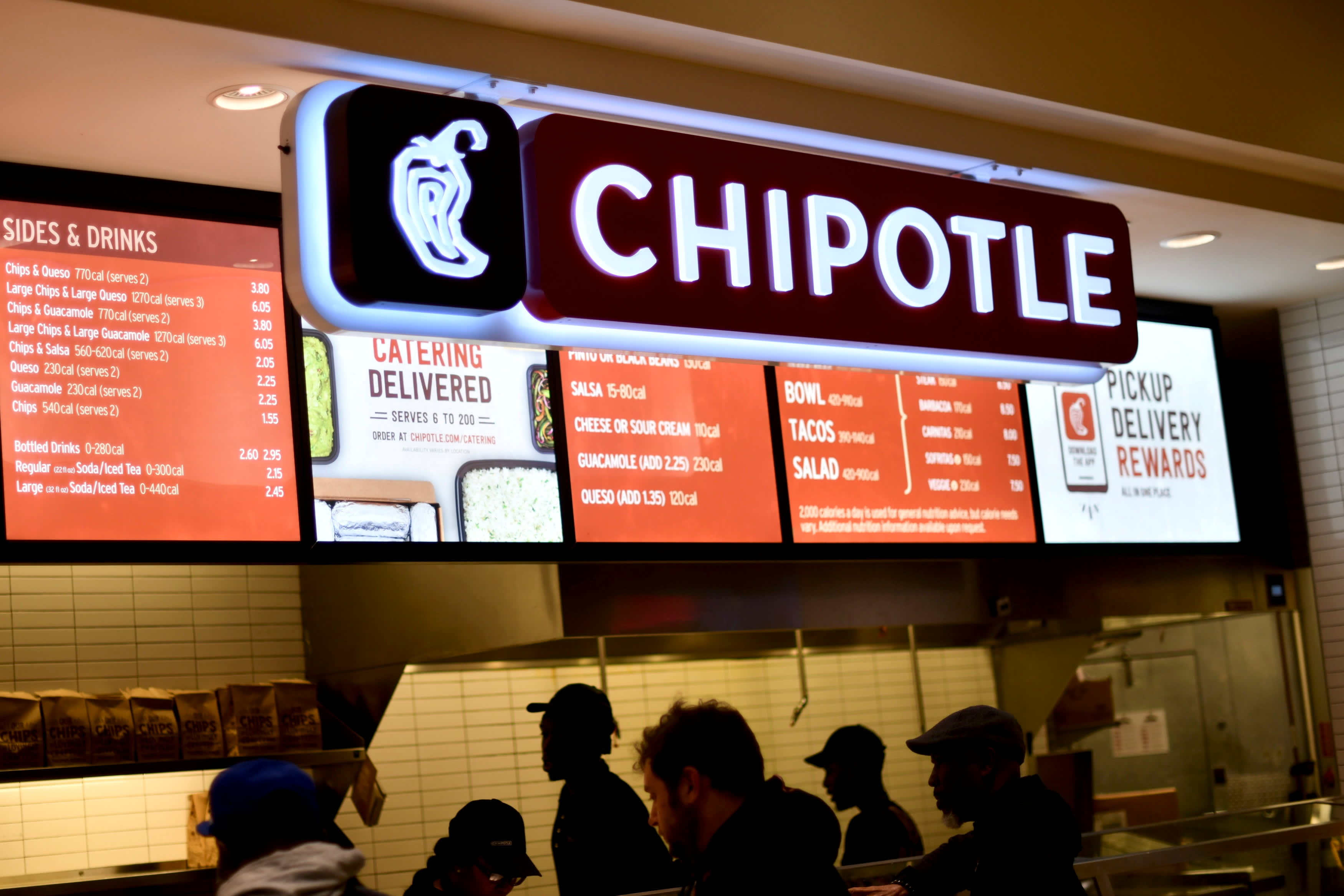As the labor market heats up, Chipotle Mexican Grill announced Monday it’s raising pay for restaurant workers, reaching an average of $15 an hour by the end of June.
The company has also introduced employee referral bonuses of $200 for crew members and $750 for apprentices or general managers, as it looks to recruit 20,000 new workers across the country to support its peak season and new restaurant openings.
The pay hike for new and existing restaurant workers, both hourly and salaried, will roll out over the next few weeks, with hourly crew wages starting in the range of $11 to $18 per hour. There are also opportunities to advance to a restaurateur position, which is the highest-ranking general manager, with average compensation of $100,000 a year, Chipotle said, in as little as 3½ years.
In an interview with CNBC, Chipotle CEO Brian Niccol said the current labor market is among the most challenging he’s seen in his career in the restaurant industry. In this environment, the company hopes to convey the opportunities that exist for growth within the brand.
“We are sharing with people that it’s not just a job right now, but it’s actually a job that can lead to a meaningful career,” Niccol said, as workers are being choosy with employment options and reassessing work post-pandemic.
“I’m glad that we’re a company that’s got the growth, and frankly the strength, to increase wages and start talking more about how the job leads to your future growth with our company,” he said.
Feedback from hiring managers has pointed to a myriad of reasons for challenges in finding workers beyond stimulus money including uncertainty around school plans, child care and more, he said, adding that the company is confident it will be able to recruit the workers needed to support growth.
Chipotle is getting creative in its hiring initiatives. It is hosting a virtual career fair on Thursday on Discord, the social platform, that will include sessions with current employees. Other Chipotle benefits include mental health care and 401(k) plans and debt-free degrees for workers after 120 days from nonprofit, accredited universities in partnership with Guild Education.
“We challenge ourselves to be on the platforms and in the places where our customers are — as well as young people that I think would be really interested in the opportunity to work at Chipotle,” Niccol said.
A tight labor market is hitting companies across the industry, forcing many to step up recruitment efforts.
McDonald’s held hiring events last month to fill 25,000 positions in Texas after bringing on 260,000 workers as restaurants reopened for dining last year. The company says it is sharing hiring practices across markets and just hosted a webcast to discuss best practices in staffing. Owners and operators are using different programs to recruit locally from pay incentives, including appreciation pay, sign-on and referral bonuses and benefits like offering paid time off.
IHOP, owned by Dine Brands, is looking to hire 10,000 employees for full and part-time workers. Yum Brand’s Taco Bell also held nationwide hiring parties in April to bring on 5,000 workers.
Hiring crunch
A tight labor market is hitting business big and small. The Chamber of Commerce called for an end to enhanced unemployment benefits Friday, claiming the boost in pay was a drag on the labor market.
The National Federation of Independent Business said 44% of small business owners had roles they could not fill in April, a record high for a third month straight. NFIB chief economist Bill Dunkelberg said in a statement that some owners are even offering “show up” bonuses for those who are hired and report to their new job.
Ray Keating, chief economist at the Small Business & Entrepreneurship Council, said the dearth of workers is about much more than just enhanced unemployment benefits — there’s uncertainty about child care, health concerns and personal savings rate increases thanks to stimulus that may be buying some workers time.
“I do think there is a big reevaluation going on both on the business side and the individual side of how we work and where we work,” he said of the shift in life seen over the last year due to the pandemic.
Companies are also noting the talent crunch is impacting business beyond their own restaurant operations. Wingstop CEO Charlie Morrison said labor is a factor in the chicken supply chain, leading in part to the ongoing shortage.
“The pandemic has caused challenges to be able to staff plants to be able to slaughter enough chickens to be able to meet the demands of the marketplace,” he said in an interview.
Papa John’s has hired 30,000 workers over the course of the pandemic. CEO Rob Lynch said the company is working to retain them, but sees supply availability and labor shortages going hand in hand.
“Raw material supply has been a bit challenging, and it’s driven, at least from what our suppliers are telling us, primarily by the lack of labor to be able to process the materials,” he said, also citing chicken wings as an example.
